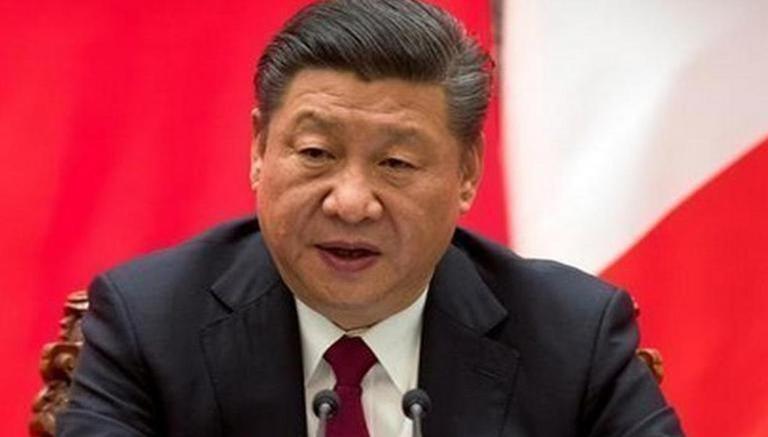China sowing seeds of profit in Afghanistan
New Delhi: Taliban has once again taken the rule of Afghanistan after 20 long years.
Predictions are being made as to how America’s withdrawal from Afghanistan will impact China’s regional and global standing. Some argue the withdrawal of US forces will free up American resources to focus on China and the Indo-Pacific.
For others, the withdrawal opens a vacuum for China to exploit. Still others assert that Taiwan is now more vulnerable because Beijing has taken the measure of America’s resolve and competence and found it lacking.
To delve into this matter, the Red Lantern Analytica on Tuesday caught up with Michael Johns, the co-founder of the US Tea Party movement, the largest grassroots political movement in American history.
The US Tea Party movement has supported adherence to the US Constitution, limited government, and lower taxes and was broadly credited with Republican victories in the US House of Representatives in 2010, the US Senate in 2014, and helping pave the ground for the grassroots-led political victory of Donald Trump in 2016.
Michael Johns is also a leading US foreign policy expert and has served previously as a White House presidential speechwriter to President George H.W. Bush and as a senior aide in the US Senate and to former New Jersey Governor and 9/11 Commission chairman Thomas Kean.
Johns has authored the book ‘The US and Africa Statistical Handbook’, and has also written for The Wall Street Journal, The Christian Science Monitor, National Review and other media houses.
Johns is a graduate of the University of Miami, where he majored in economics. He also studied abroad at Gonville & Caius College, Cambridge University, in the UK.
He was asked what he thought about the revival of the Taliban regime that may somehow weaken the US-led liberal international order based on democratic values, because the world’s most ‘powerful autocratic country and human rights violator’ — China — is playing the key role in legitimising the Taliban government, another great violator of human rights.
To this, Johns replied that the relationship between the Chinese Communist Party (CCP) and the Taliban is a developed relationship, which is currently underrated.
The role of China in the Taliban issue is the one that deserves a great degree of scrutiny. This connection between the CCP and the Taliban can pose a great threat to international security, he said.
He elaborated further, in the context of the Taliban resurgence, many are of the opinion that there has been a considerable change in the Taliban policy, but that’s not true. Taliban can never change. Their intention of spreading global Jihad and the brutalities they perpetrate to achieve this remains the same, Johns said.
And in this process, they are being offered sophisticated guidance from Pakistan’s ISI and are patronised by the CCP.
The fact that 9/11 was orchestrated by Osama Bin Laden is true, but it was much abetted directly or indirectly by the Taliban regime during that time, which offered them safe haven.
The Taliban’s emergence was really the one that was developed out of Pakistan’s involvement, with a desire to see such a government in Kabul that might not be very interesting to the major world powers. Thus, no government except CCP is recognising the Taliban and no one should, he maintained.
On asked how does the US, being a close ally to the UK, explain the UK’s decision to recognise the Taliban, pointing out the extreme brutality that this group has unleashed, Johns said that this group should never be recognised.
However, he remarked, Boris Johnson has said that they may need to speak with the Taliban but no UK diplomatic recognition of them has been extended (at least not yet).
On asked about China’s long-term goals in the process, Johns said that when China came out with its identity, it was actually an aggressive plan to surpass the US, and develop their monopoly in various sectors.
It was the plan and the policy of the Xi-Jinping government to always control Central Asia.
Johns gave the example of China’s Belt and Road initiative, which has two plans to be executed. One is to facilitate travel between Kabul and Pakistan, that would be the part of the broader transportation, and secondly, Afghanistan is very mineral rich and its key resources are very vital to China.
China is slowly moving in and trying to broaden its influence as it did in Latin America, he said.
In Afghanistan, it is trying to draw the support of a small group with extremist ideology and backed by another problematic regime of South Asia, Pakistan.
Thus, as Johns pointed out, India has a very significant role to play in the region. The relationship between India and the US, given the CCP’s aggression, including against India, is really significant.
As a Heritage Foundation foreign policy analyst, Johns was a leading architect and proponent of the Reagan Doctrine of support for global political and insurgency movements confronting Soviet-backed Communist regimes, including the resistance forces of Ahmad Shah Massoud in Afghanistan, which is widely credited with helping end the Cold War without direct US military intervention.
After the end of the Cold War, Johns ran global programme development for the International Republican Institute, a non-governmental organisation supported by the US government that assists non-democratic nations and developing democracies with organizing and implementing democratic institutions, developing constitutions that protect individual rights, expanding women’s and indigenous peoples’ rights, and planning and holding free and fair elections.
He has also worked in-country throughout Africa, Asia, Latin America, and the former Soviet Union, including in Kuwait and Turkey.













